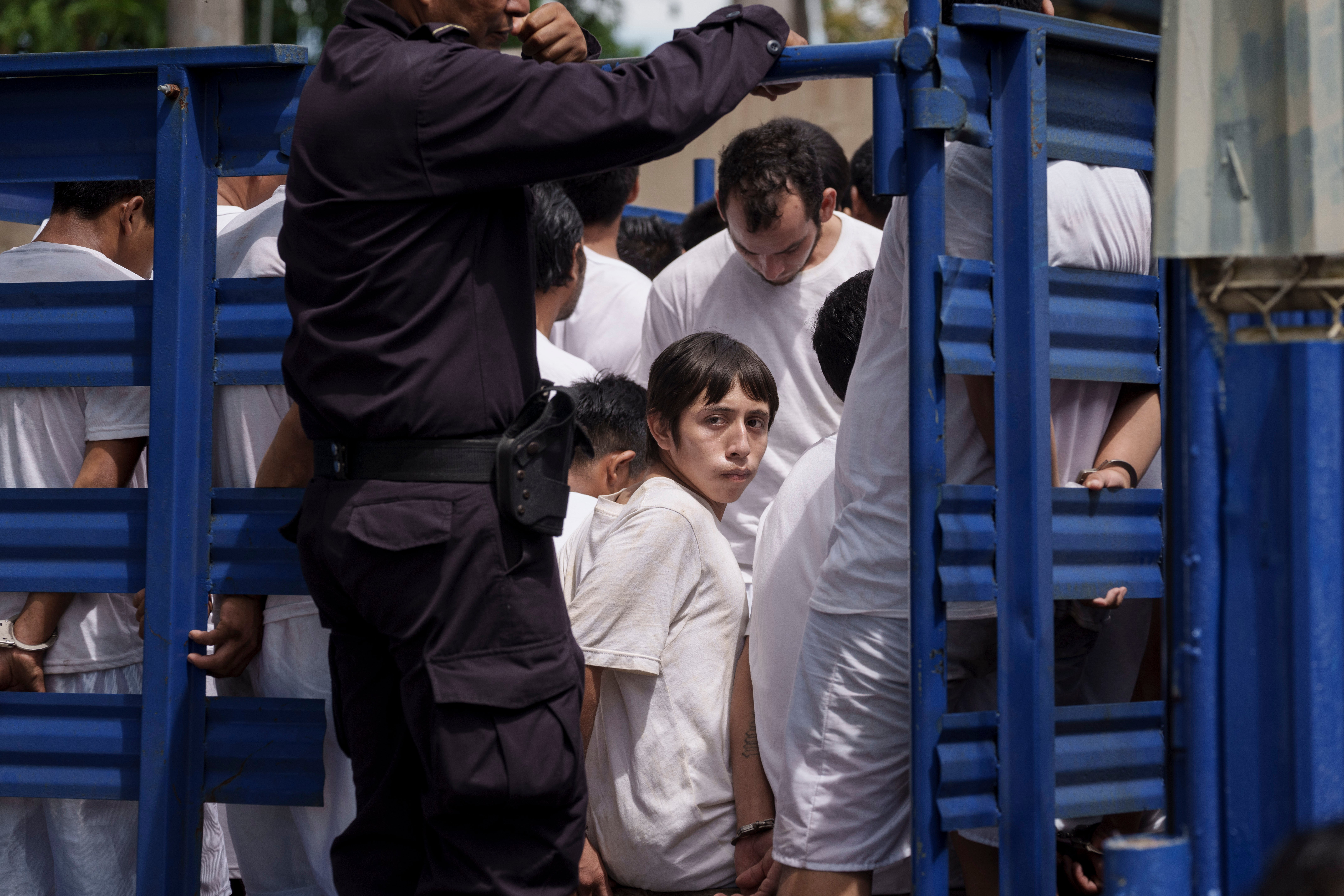Rights group: leaked El Salvador data confirm abuses
Human Rights Watch says it has obtained a database leaked from the government of El Salvador that corroborates massive due process violations, severe prison overcrowding and deaths in custody under the country’s emergency powers put in place last March to confront a surge in gang violence

Your support helps us to tell the story
From reproductive rights to climate change to Big Tech, The Independent is on the ground when the story is developing. Whether it's investigating the financials of Elon Musk's pro-Trump PAC or producing our latest documentary, 'The A Word', which shines a light on the American women fighting for reproductive rights, we know how important it is to parse out the facts from the messaging.
At such a critical moment in US history, we need reporters on the ground. Your donation allows us to keep sending journalists to speak to both sides of the story.
The Independent is trusted by Americans across the entire political spectrum. And unlike many other quality news outlets, we choose not to lock Americans out of our reporting and analysis with paywalls. We believe quality journalism should be available to everyone, paid for by those who can afford it.
Your support makes all the difference.Human Rights Watch says it has obtained a database leaked from El Salvador's government that corroborates massive due process violations, severe prison overcrowding and deaths in custody under the emergency powers put in place last March to confront a surge in gang violence.
The global human rights organization said Friday that the database from the Ministry of Public Safety lists details about some 50,000 people arrested between the implementation of the state of exception in late March through late August.
A spokesperson for the president said they had not seen the report early Friday and had no comment.
El Salvador’s Legislative Assembly approved the suspension of some fundamental rights following an outburst of violence from the country’s powerful street gangs. People no longer have to be told why they are being arrested or what rights they have or given access to a lawyer. The government also suspended the right of association.
Many of the abuses have been previously reported by Human Rights Watch and local civil society organization Cristosal, but the government data added some detail. It included the names of those arrested, their ages and gender, the charges they face, the prisons they were sent to and where they were arrested.
For example, among those arrested during the period were more than 1,000 minors who were sent to pre-trial detention. In March, the country’s Legislative Assembly lowered the age of criminal responsibility to 12 from 16 for gang-related crimes.
The database also pointed to staggering levels of overcrowding in El Salvador’s prisons. The government is building a massive new facility, but in the meantime, more and more detainees are stuffed into existing prisons while awaiting trial.
As of August, the prison population had grown to more than 86,000, while according to government information in February 2021, they had a capacity of 30,000.
The government reported in November that 90 people had died in custody since March.
The most common charge those arrested face is “unlawful association,” accounting for some 39,000 of the new cases. More than 8,000 face a charge of belonging to a terrorist organization.
“The use of these broadly defined crimes opens the door to arbitrary arrests of people with no relevant connection to gangs, and does little to ensure justice for violent gang abuses, such as killings and rape,” Human Rights Watch said in a statement.
Security Minister Gustavo Villatoro recently said that no international organization was going to tell El Salvador how to fix its problems and that the number of detentions shows that the strategy has been successful.
Violent crime has fallen dramatically across El Salvador and the public has expressed broad support for the harsh measures in polling.
For years, gangs controlled swaths of the country. They commonly controlled who came and went from neighborhoods, including whether government services had access. The gangs also mercilessly extorted local businesses and aggressively recruited for their ranks.
The government reported 495 homicides in 2022, the lowest figure in decades. The government did not include at least 120 killings committed by security forces against alleged gang members. Still, that total pales in comparison to the 6,656 homicides the country endured in 2015.